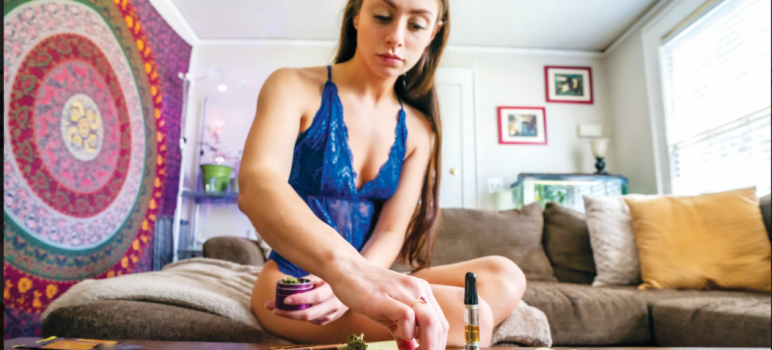The culture clash that has characterized the cannabis business since before California voters legalized adult use in 2016 shows few signs of abating, despite the pandemic and all the other struggles the industry faces. Many of the people who worked in the state’s pot industry in the years and decades before legalization worry about venture capitalists and “Big Weed” stomping into their world, pushing out smaller players and placing the market in a few, powerful hands. So far, their worries have been largely justified.
Lately, complaints have turned to another issue that might prove even more ruinous—from the perspective of “traditionalists,” at least—than industry concentration and unfair competition. I’m talking about insufferable industry hype.
Right from the get-go, celebrities from Tommy Chong and Roseanne Barr to Martha Stewart have flocked to weed to enhance their “brands.” They put their names on products that in some cases they might be wholly unfamiliar with. In other cases, like that of Jim Belushi, they are actively involved with running pot companies.
But most show up for appearances at bacchanalian industry events—or at least, they did so before the pandemic hit. Now that nearly everything is happening online, people are starting to complain about “influencers.”
Influencers have been all over social media for years. They are sometimes established stars, and sometimes just people who have built up big social-media followings, which they then leverage for profit by hawking everything from perfume to sneakers.
This group is newer in the cannabis space, thanks largely to the fact that it’s difficult for many pot companies to advertise because of all the legal restrictions and regulations. They can’t run TV or radio ads in most cases. In many markets, even print and billboard ads are forbidden. Putting influencers to work is one way to deal with that problem.
But is it good for the industry?
No, said David Rheins, executive director of the Marijuana Business Association. The rise of cannabis influencers is “a bullshit marketing thing that people pay into,” he recently told the Talking Hedge podcast. “I think payola is alive and well in social media.”
That might be putting it mildly.
Beyond influencers, a whole raft of publications—both online and in print—that purport to “cover” the cannabis industry are really just pay-to-play marketing organs. And, as is the case in many industries, there are lots of trade magazines that don’t directly take money from the sources of articles, but do run puff pieces in the hopes of getting those sources to buy ads or reward them for doing so. The journalism in these publications is far from hard-hitting, to say the least.
“Influencers,” though, are often at least transparent (but sometimes not). They take money to pass along marketing messages. They are human billboards. And most people know it. The fact that they are so, well, influential might say more about our society than it does about the influencers themselves and their sponsors.
Their followers on social media platforms can run into the hundreds of thousands, most of them presumably aware that they’re being marketed to and that the so-called “weedfluencers” they’re following aren’t passing along independent, objective advice.
None of this means they’re lying, at least not in every instance. It’s just that it’s impossible to know whether a person is praising a product that deserves such praise. One of the more popular weedfluencers, Koala Puffs, told MG Retailer magazine that the most important thing to her is that “the content has to feel genuine. With authenticity, the audience you attract will be organic and loyal.”
Whether it “feels” genuine is, of course, up to the audience, which in Koala Puffs’ case numbers nearly 700,000 on Instagram alone. “It depends on how you define ‘authentic,’” Rheins said. “One can confuse and conflate authenticity with popularity.”


Add restrictions for weed should be the same or more so, as tobacco and liquor. I’d like to see a lot of abused prescription meds on that list as well.